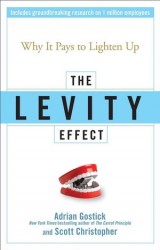Of the three keynote speakers at HR Florida, Daniel Pink was definitely my favorite. He shared some phenomenal ideas to motivate employees, and I’m already looking at ways to incorporate those concepts into the workplace.
Quote of the day
Management is an 1850s technology for controlling people at work. -Daniel Pink
Commissioned vs. non-commissioned work
 He touched on several pieces of interesting research, but the most interesting was a study of commissioned (someone pays the artist to create it) and non-commissioned (it is created by the artist with no compensation in return) artwork. A random selection of both types was assembled, and the objective judges provided some interesting feedback. While both sets fit the requirements for form and function, the non-commissioned works were judged as more creative nearly every time.
He touched on several pieces of interesting research, but the most interesting was a study of commissioned (someone pays the artist to create it) and non-commissioned (it is created by the artist with no compensation in return) artwork. A random selection of both types was assembled, and the objective judges provided some interesting feedback. While both sets fit the requirements for form and function, the non-commissioned works were judged as more creative nearly every time.
The takeaway for business leaders is that we should look for ways to provide non-c0mmissioned work opportunities for our people. An Australian software company called Atlassian offers what they call “Fedex days” to their employees. Basically the staff has the opportunity to work for 24 hours on projects not directly related to their daily duties. The only requirement for employees during these events is that they have to make a presentation to the company describing what they worked on.
They have had incredible success with this program, and the projects and tools that have been developed during these day-long work marathons have helped to spur innovation and creativity throughout the organization. In short, it works.
Autonomy-it matters
It’s been known for quite some time that autonomy really is a powerful tool to get your people invested in their work. When was the last time you asked someone to describe their best boss ever and they replied, “He/she was always looking over my shoulder and was quick to point out when I was wrong. I love my micromanaging boss!”? I’ll go ahead and state the obvious: that has never, ever been said by anyone!
One of the hard parts after hearing a session like this is to figure out how to apply it to your daily work. Daniel Pink did a great job of offering ideas to put into action (including taking the Fedex Day idea above for a test drive). He called this one the autonomy audit.
How to perform the autonomy audit
Ask employees to rate these four questions on a 0-10 scale (0 being low control, 10 being high control):
- How much control do you have over your time at work?
- How much control do you have over your technique at work?
- How much control do you have over your team at work?
- How much control do you have over your task at work?
You’ll end up with a score between 0 and 40. Next ask the manager to predict the employee’s score from 0-40. Then (here’s the kicker) share the employee’s score with the manager. Almost always the manager’s prediction will assume the employee has higher control than the employee believes.

